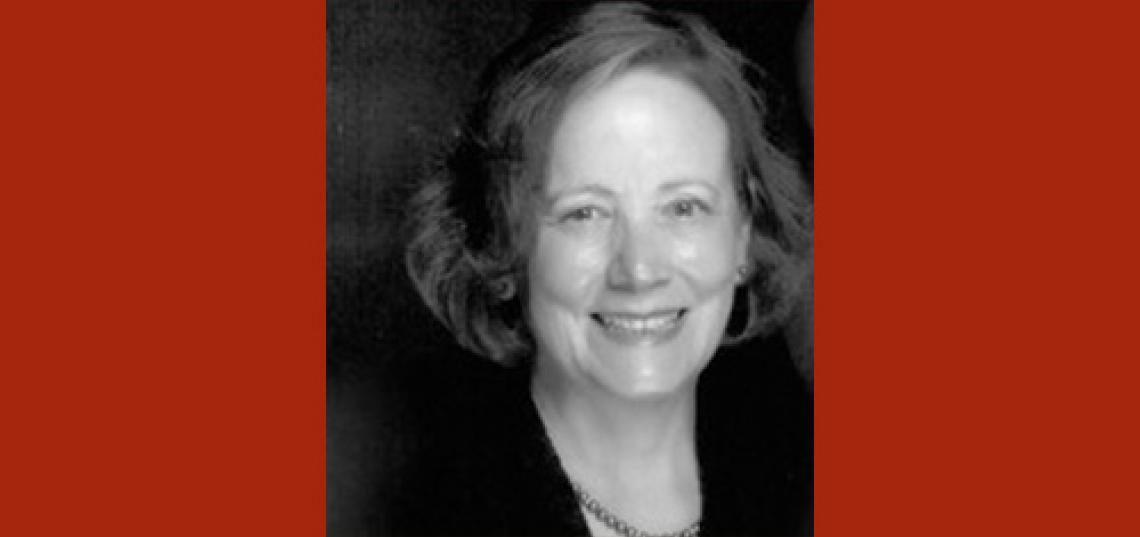
Asked for career advice for current Journalism and Media Studies students at SC&I, Linda Roman JMS’78 wrote, “I advise students to start working right away in their field of study—by contributing to student media and developing interviewing and writing skills. Check and double-check all facts and never take anyone at their word. It’s important to develop a healthy skepticism to keep you looking for the truth (watch the movie ‘Spotlight’ for inspiration) and remember, as we say in the business: Content is king.”
Roman has spent her career as a local and national newspaper reporter and editor, and it’s taken her to the Journal News in Westchester County, NY; 10 years at Reader’s Digest magazine, where she edited features and the humor columns (including “Laughter, the Best Medicine”); the New York Times Syndicate; Consumer Reports; and RN magazine. Since 2004, she has specialized in medical editing, and currently she is a freelance editorial project manager for Remedy Health Media in New York City.
Below, Roman explains how her career has grown and evolved, the ways her Rutgers education continues to influence her, and why it’s important for journalists to network broadly and remain “versatile” as technology continues to impact the industry.
Why did you choose to attend Rutgers and major in Journalism and Media Studies?
LR: I chose to attend Rutgers because of its stellar reputation, plus it was more affordable than going to a private university. While on the Livingston College campus, I learned about the college’s journalism program and soon declared a major in journalism and English. I had started out thinking I would major in education, but something about the journalism program really excited me. I loved to write and the student newspaper gave me an opportunity to get my work published.
Did any specific classes and/or instructors have a lasting impact on you and the way you work, and if so, why?
LR: My professors in the journalism program were inspiring. Some had been newspaper reporters or editors themselves and often the classroom was turned into a newsroom, with assignments being handed out and the resulting stories critiqued during class. One of my fondest memories is of attending an election night get-together at a professor’s home to watch the tight race between presidential candidates Jimmy Carter and Gerald Ford. Later, as a working journalist, I went on to spend many late nights covering elections for the newspapers where I worked.
These are the professors I remember as lighting my journalism fire: David Sachsman and Richard Hixson, and department head Jerome Aumente. David Sachsman insisted that people taking his classes write for the Livingston Medium, so I did. He also insisted that I apply for a New Jersey Press Association scholarship, so I did—and I was honored to receive one. Best of all was a semester-long reporting internship at The Record in Bergen County, NJ, which was arranged by my professors.
How did you launch your career in the media industry?
LR: I graduated in 1978 and it turned out that all of the experience I gained while in school helped immensely as I started seeking employment. It wasn’t easy breaking into the field: At the time, the New York dailies were on strike, and their reporters were temporarily working at local papers in New Jersey. So there were few openings for a recent college grad. However, my professors were well-connected. Richard Hixson talked with an editor at the Daily Record in Morristown, NJ, and I landed my first job as a nighttime obit writer. I had to pay my dues, but I was grateful to my professor for getting me started. From there I went on to become a local news reporter, copy editor, and city desk editor.
Today, I’m still in print journalism and lucky to be so, since many print publications have folded. Most of my work in recent years has appeared on the web, but I’m no expert when it comes to navigating digital media. Now, of course, digital skills are a must for anyone starting out in the business.
Has your career been impacted by the ways the media industry has changed in recent years?
LR: As you know, print journalism has been taking a huge hit from the internet, and I lost a couple of jobs to downsizing because of that. But my network saved me and I had plenty of freelance work until finding my next fulltime job. In 2004, I decided to specialize in medical editing because there was a demand for editors in the industry. I did not have a medical background at the time but worked closely with doctors and nurses and treated my specialty as my new “beat.” These days, of course, it’s important to be versatile because technology is resulting in rapid changes in communications.
Discover more about the Journalism and Media Studies major at the Rutgers School of Communication and Information on the website.
Image: Courtesy of Linda Roman JMS'78
